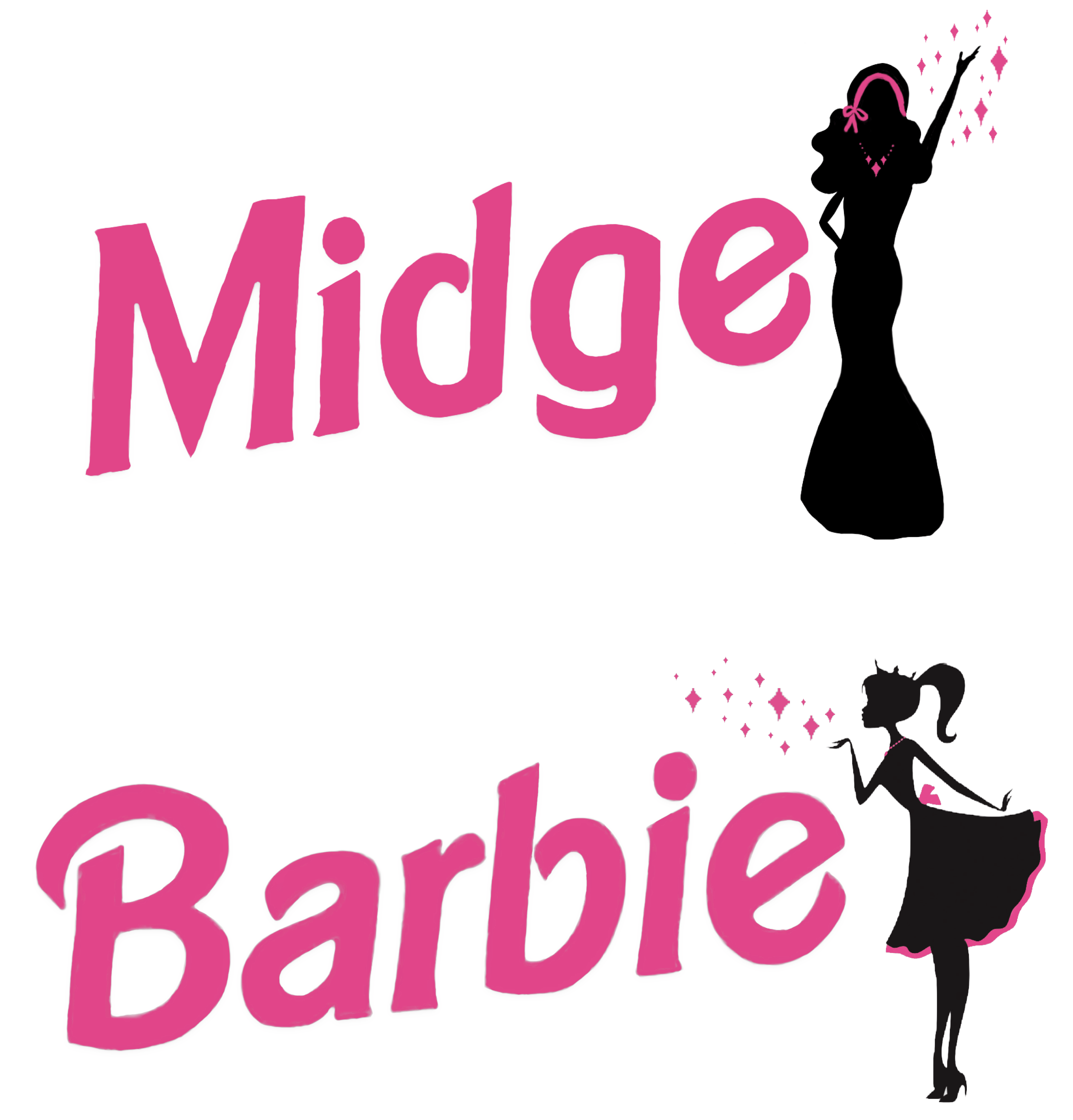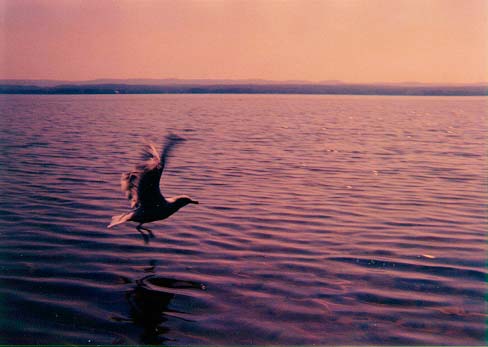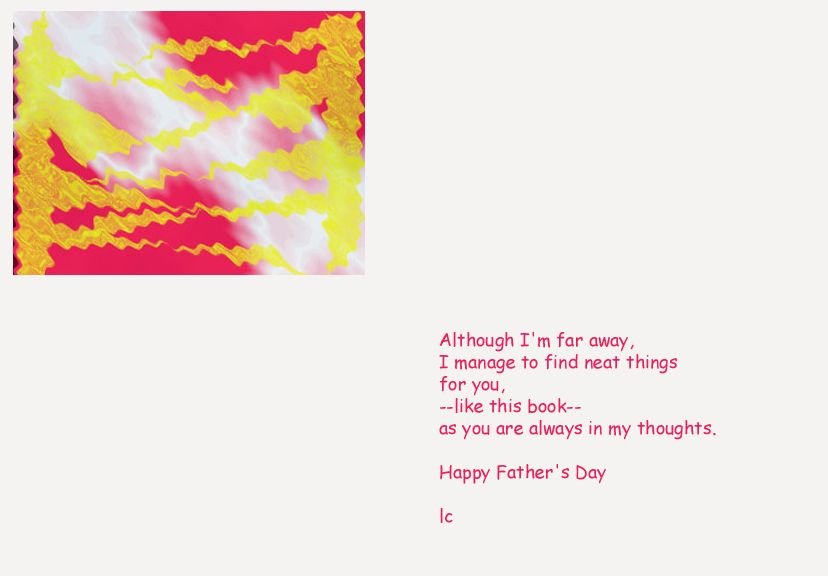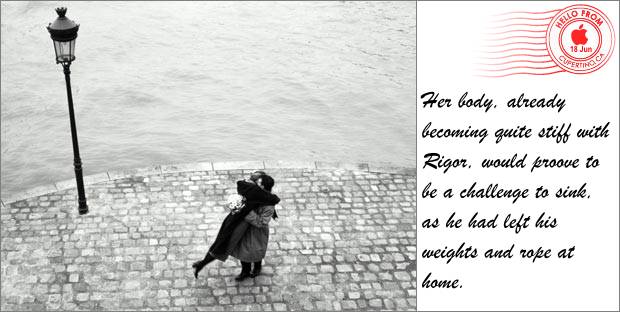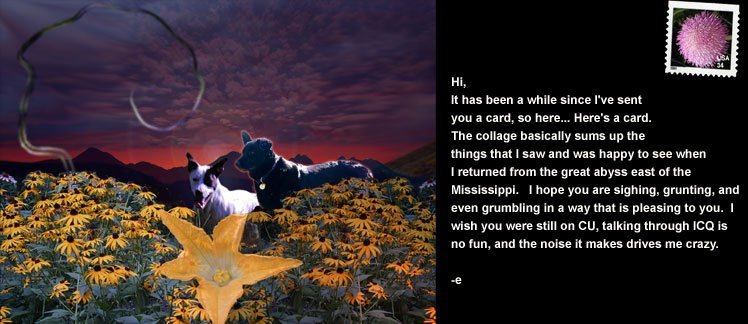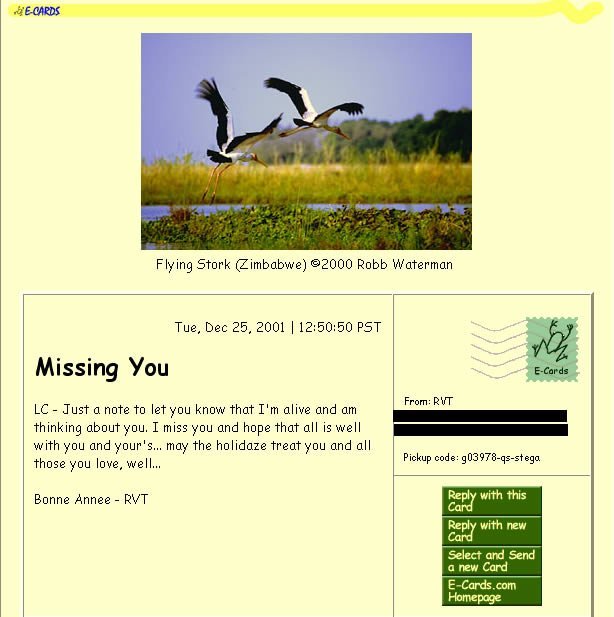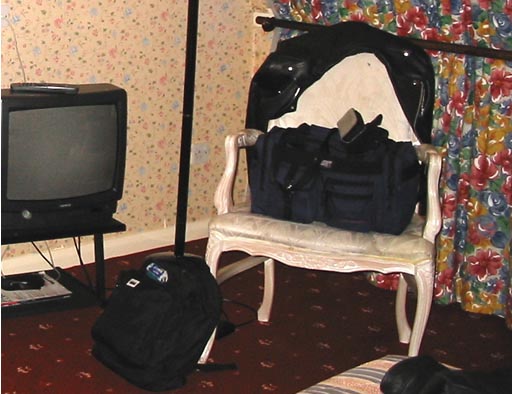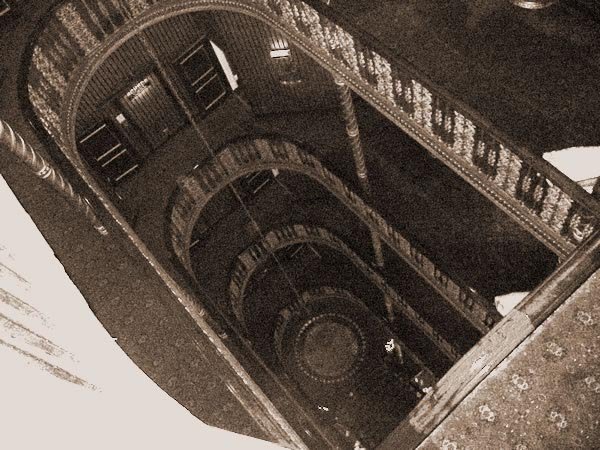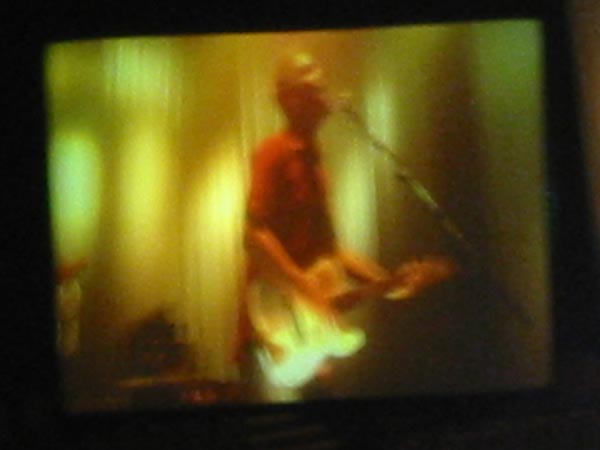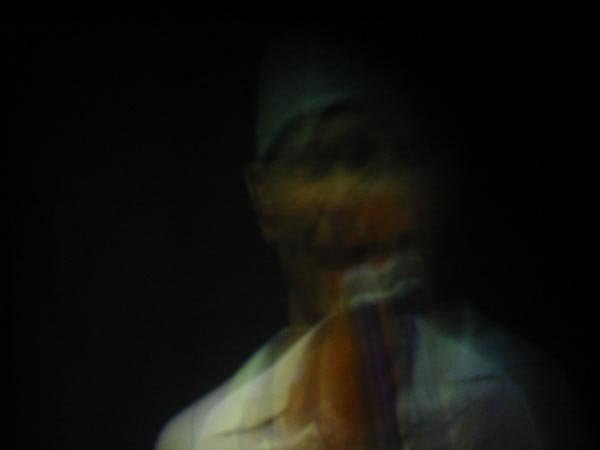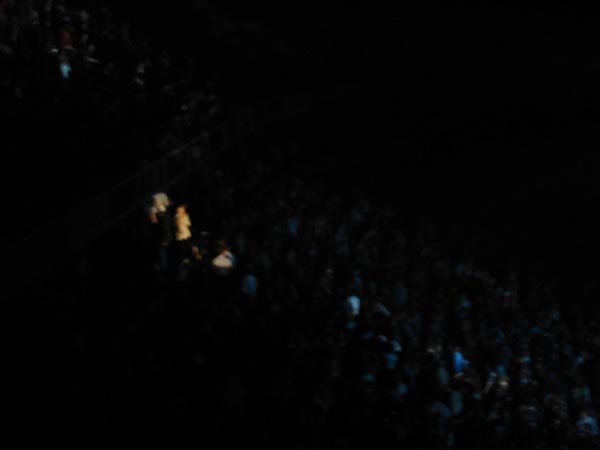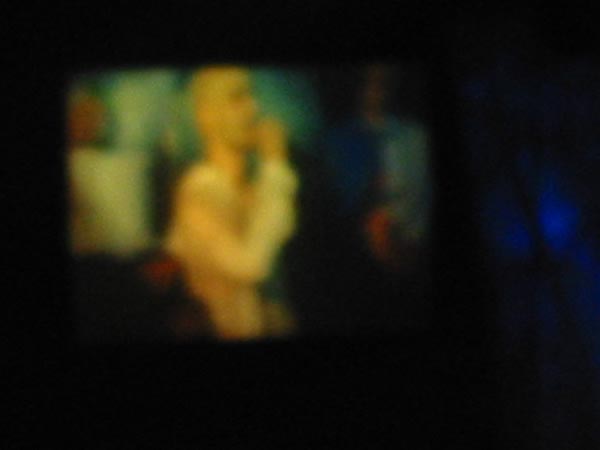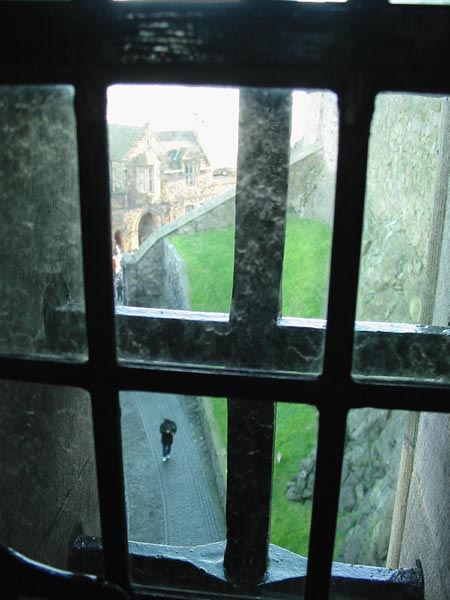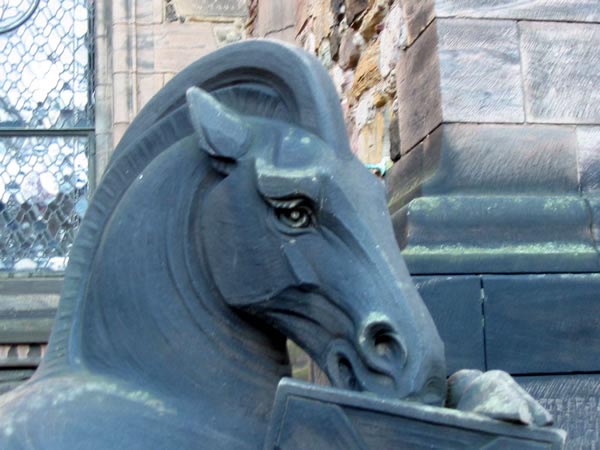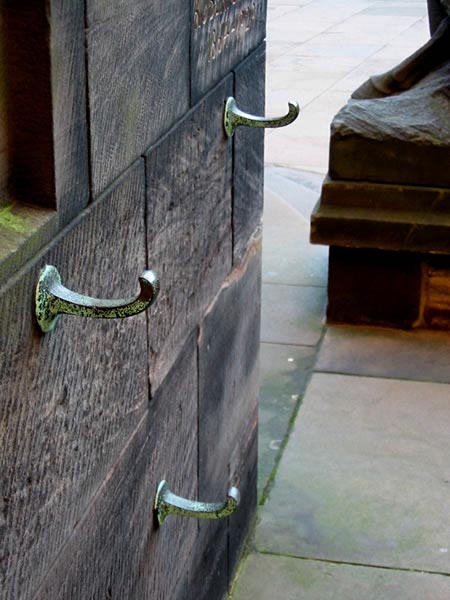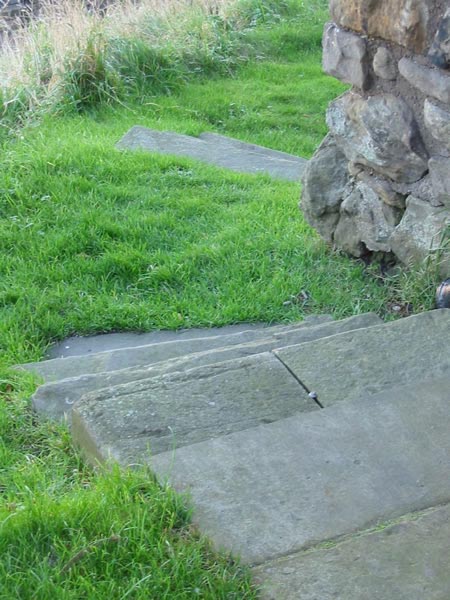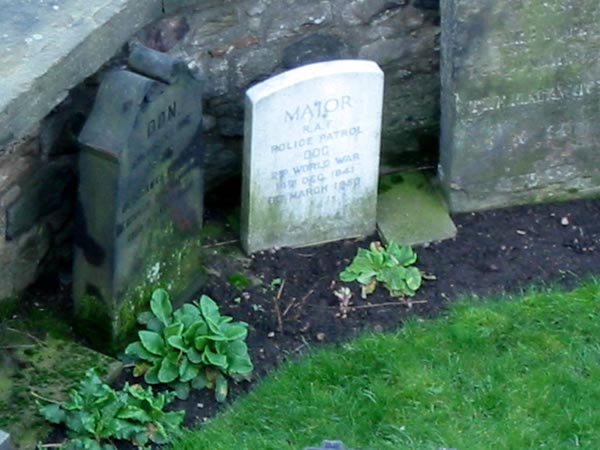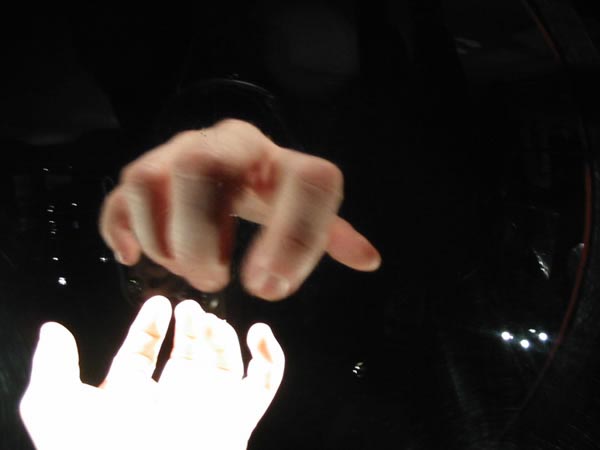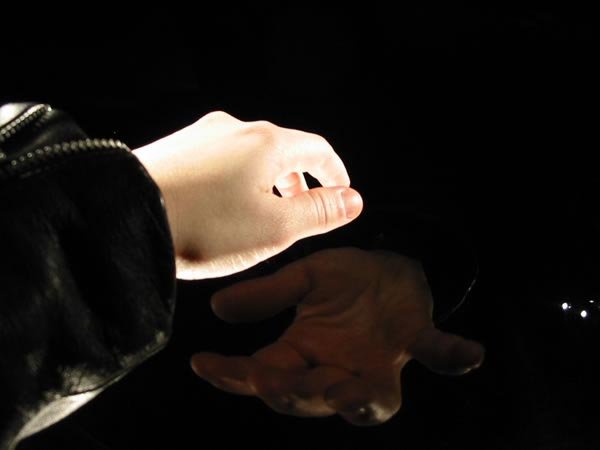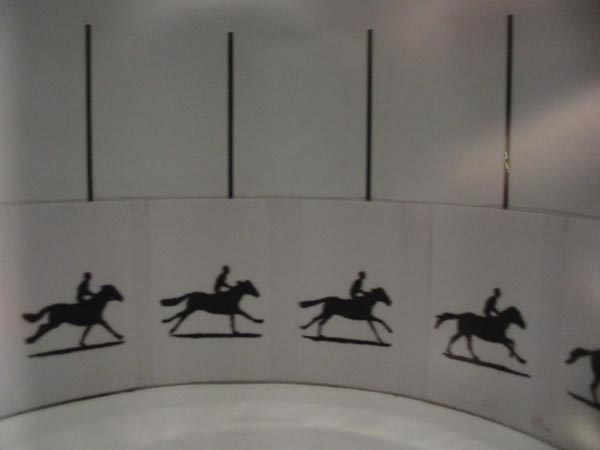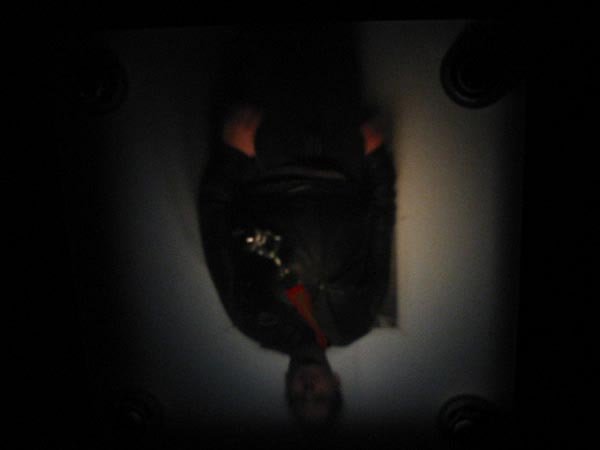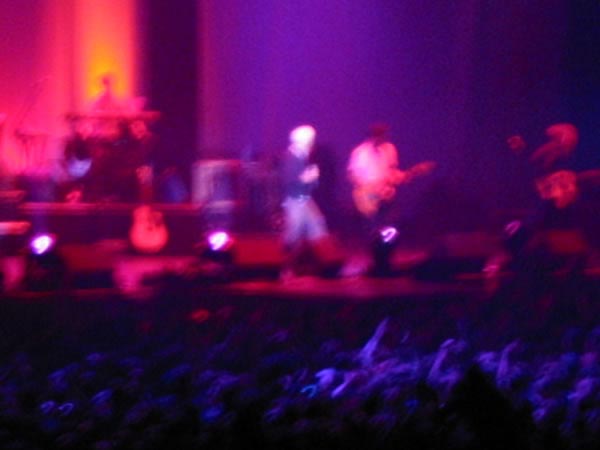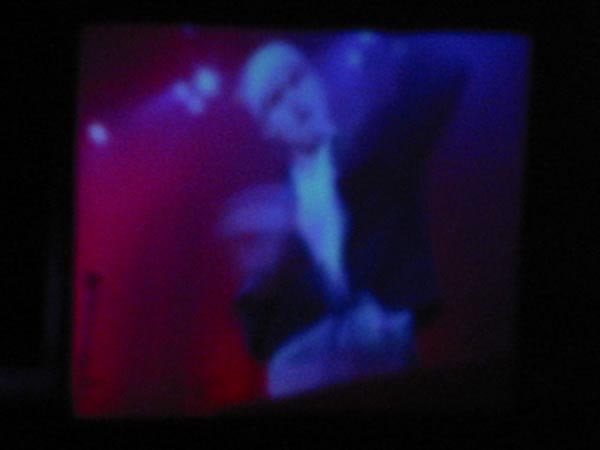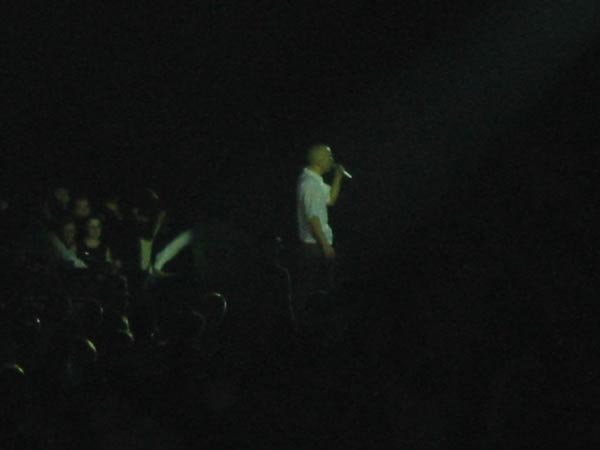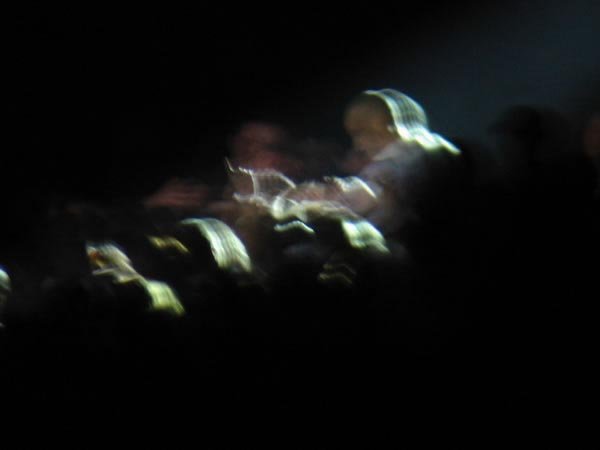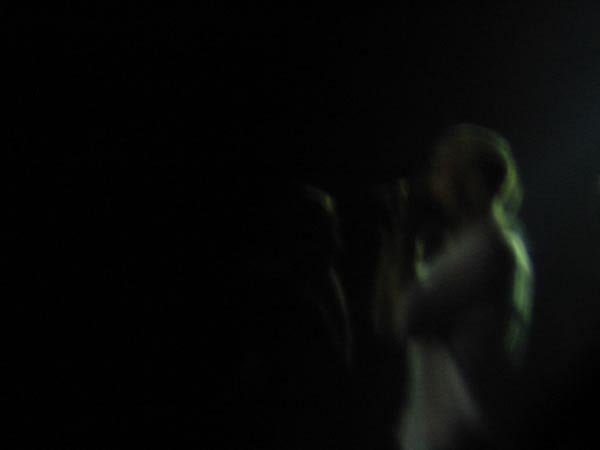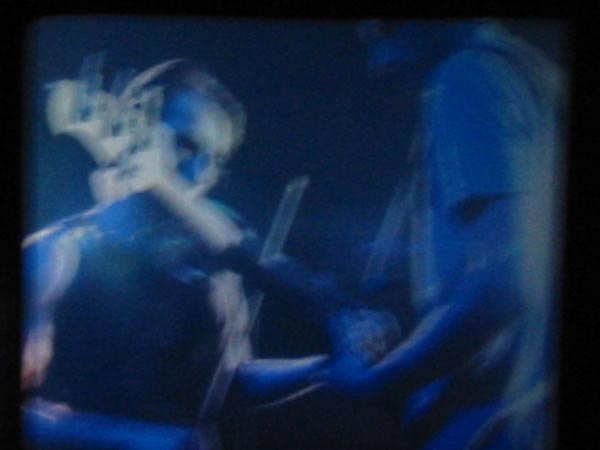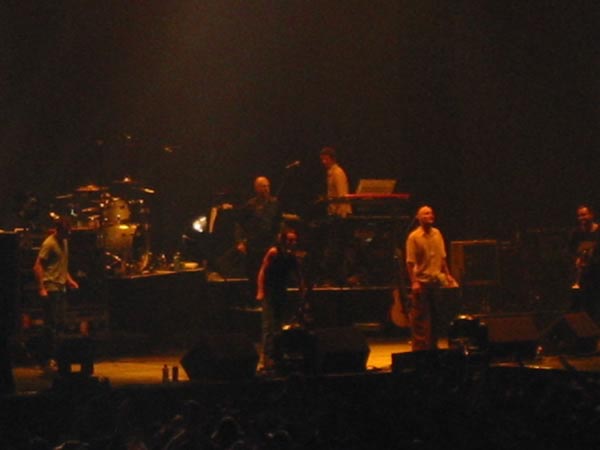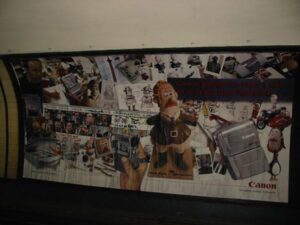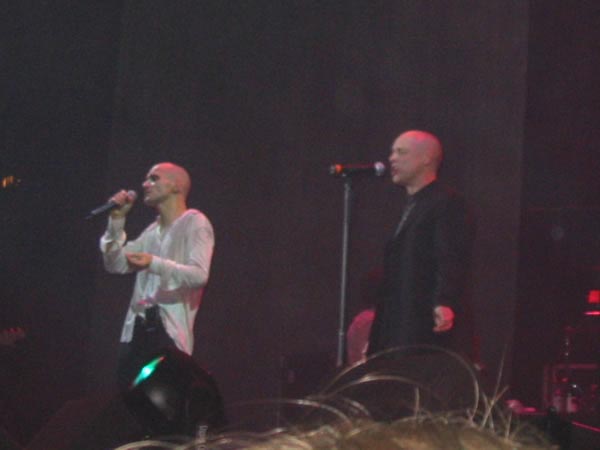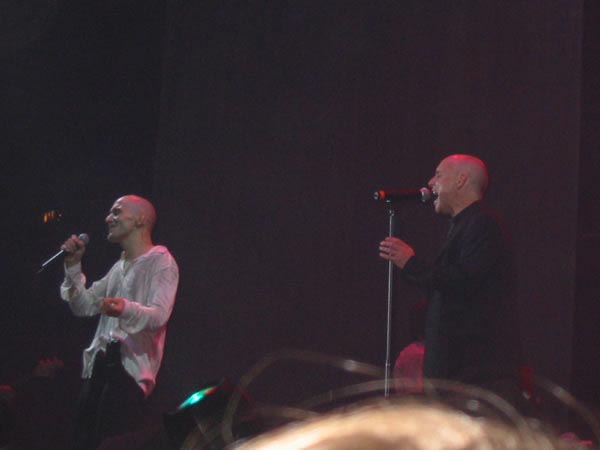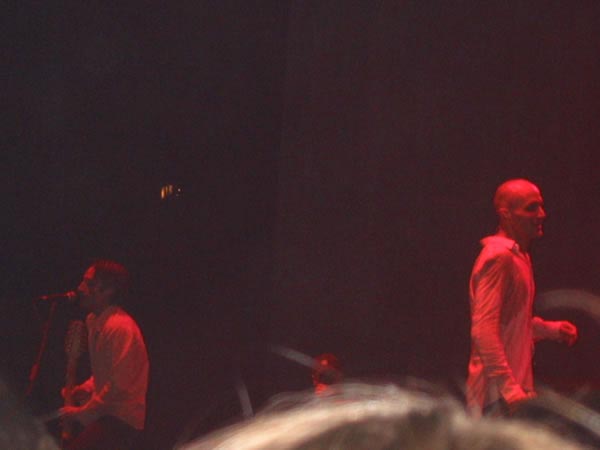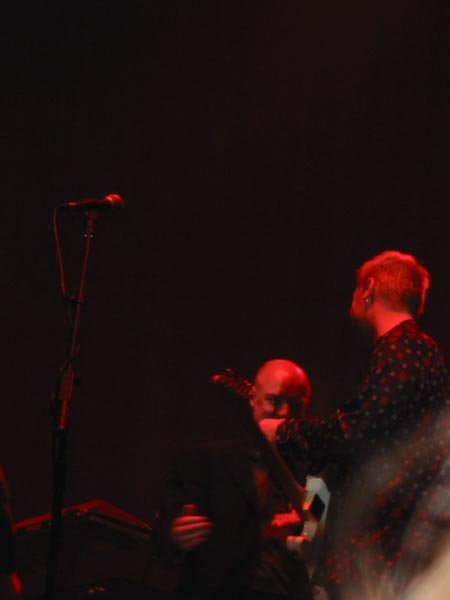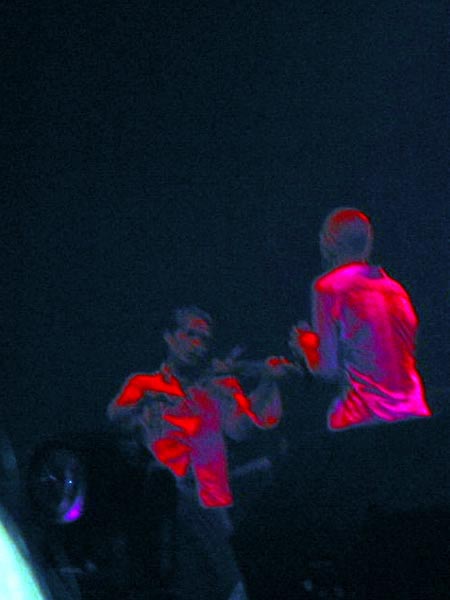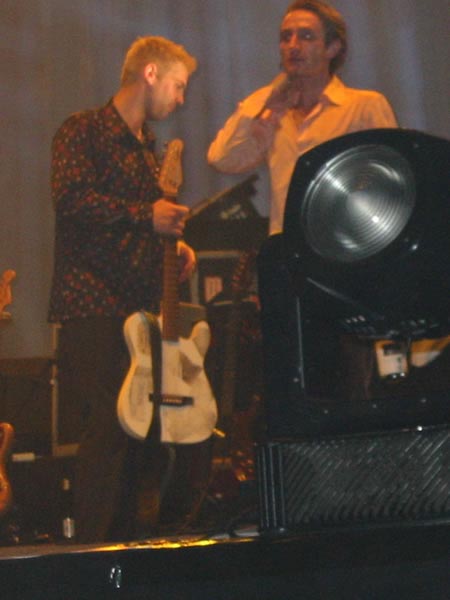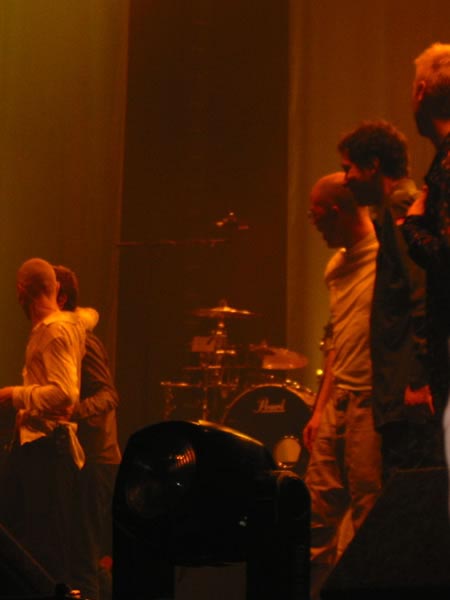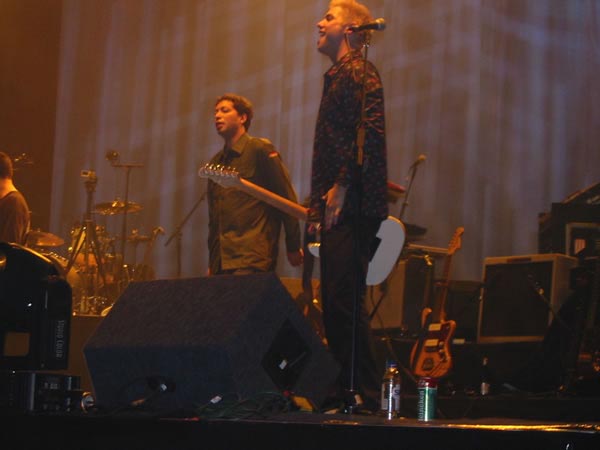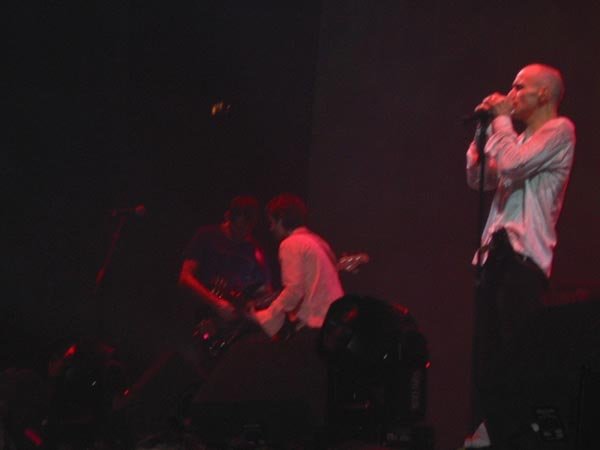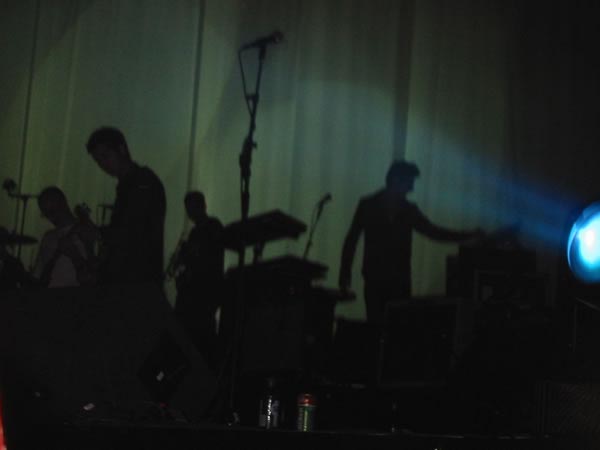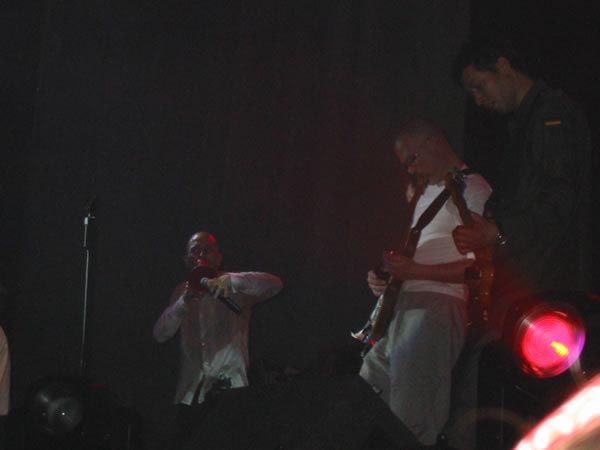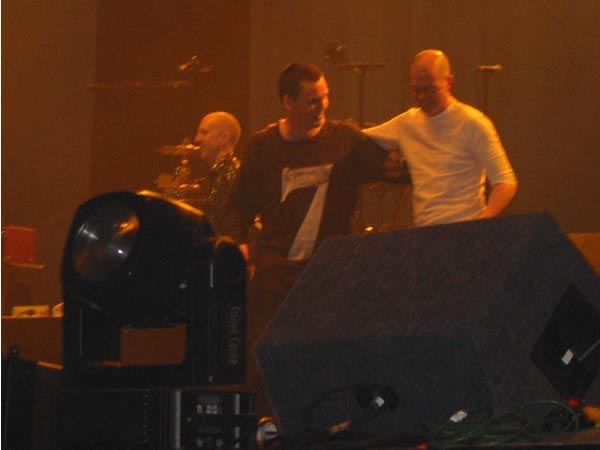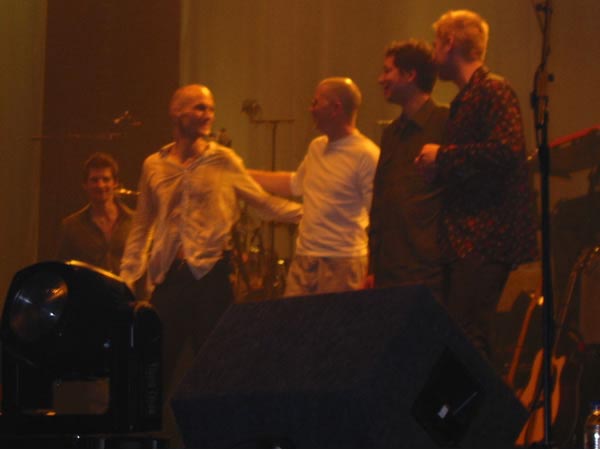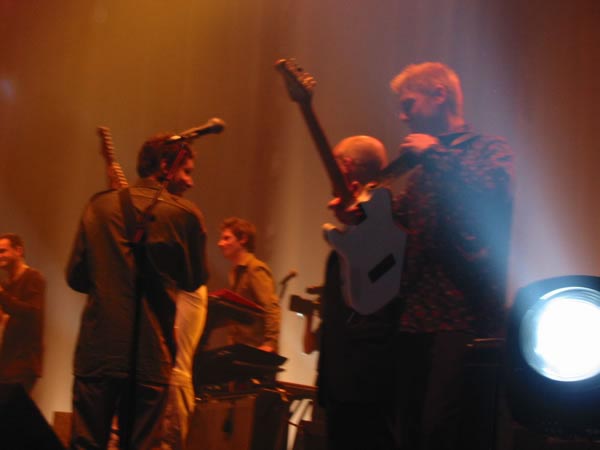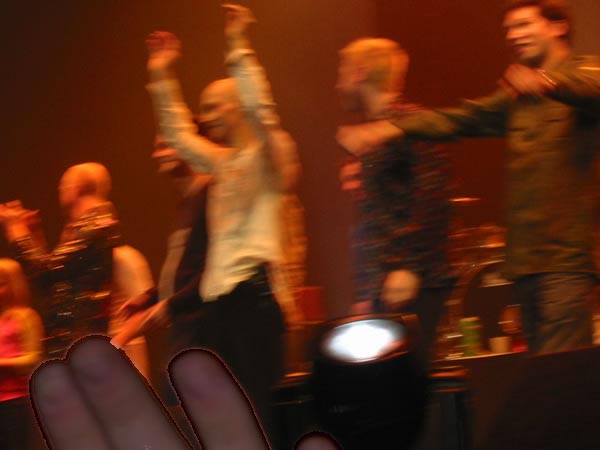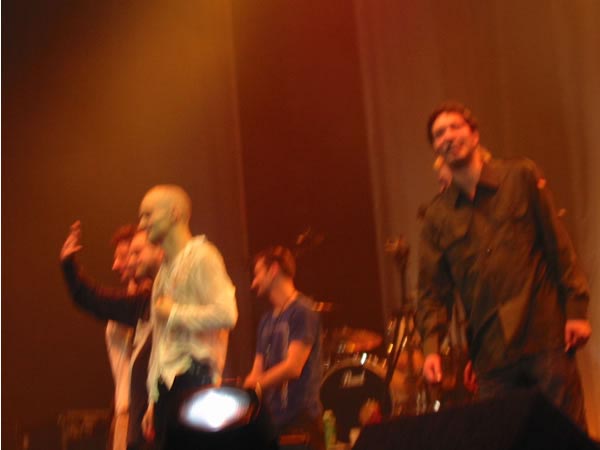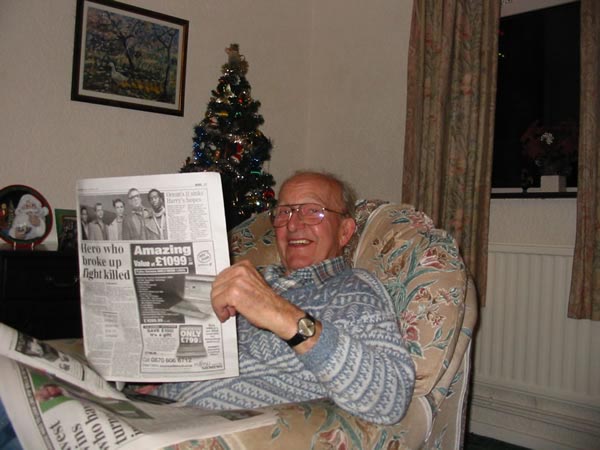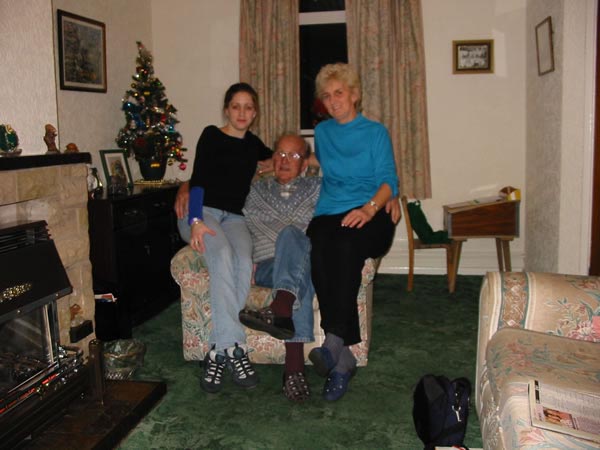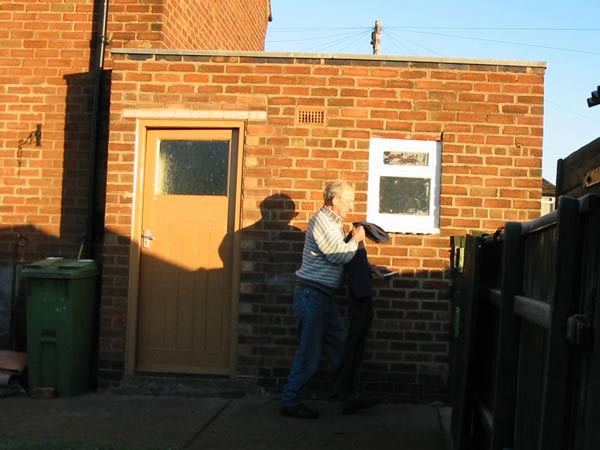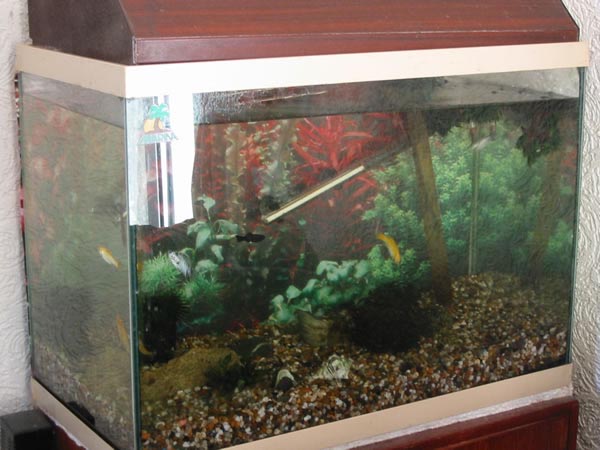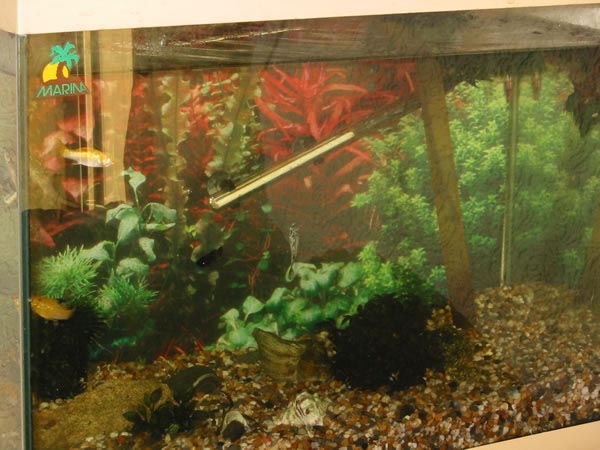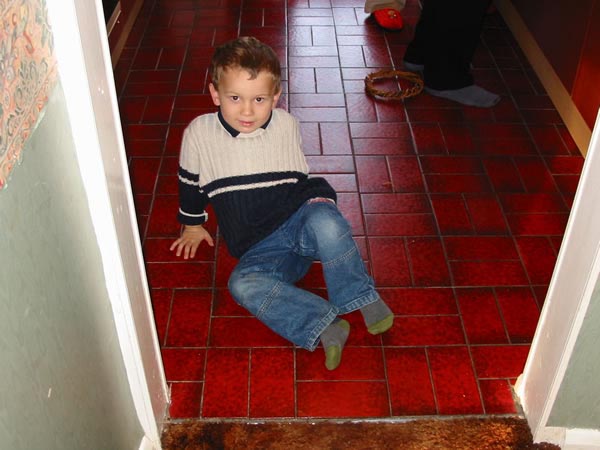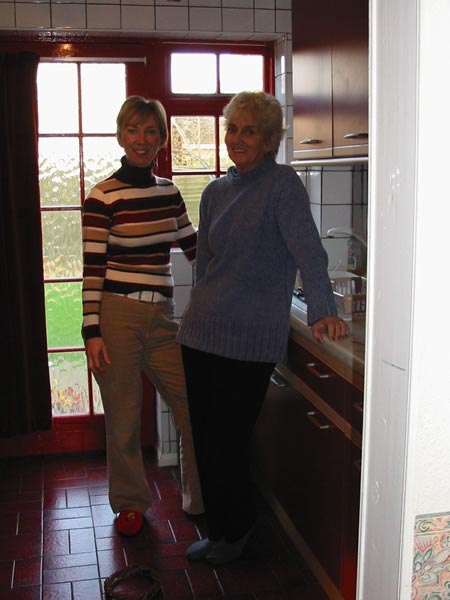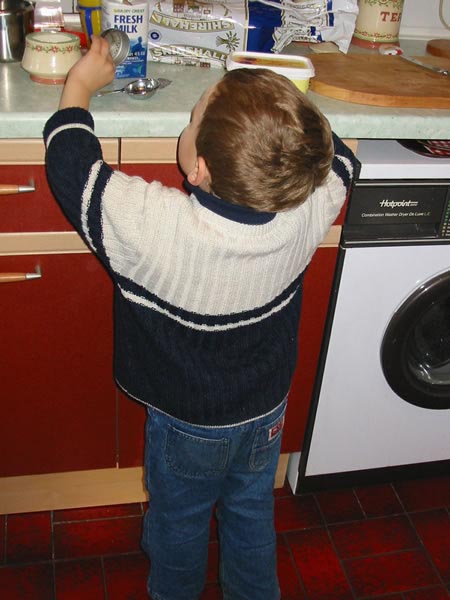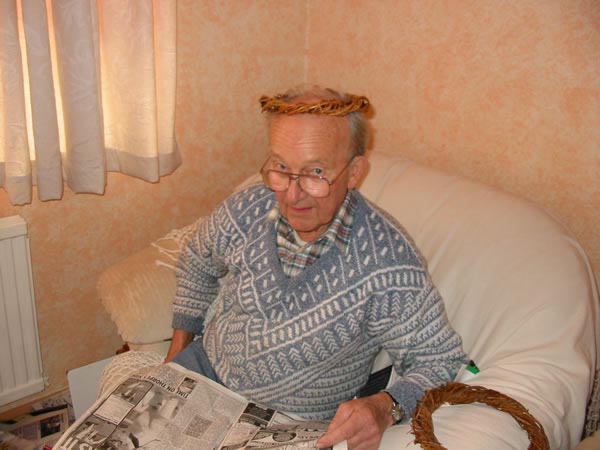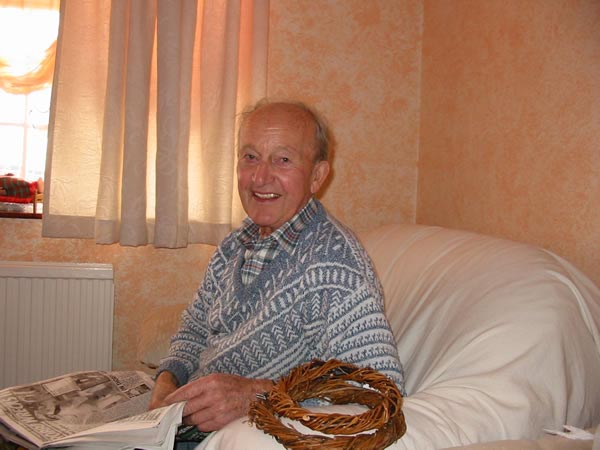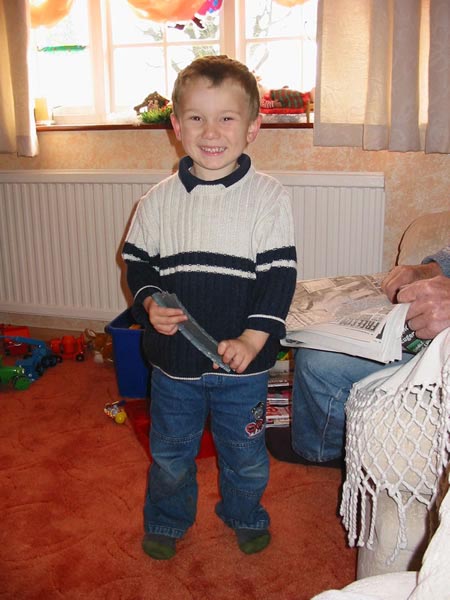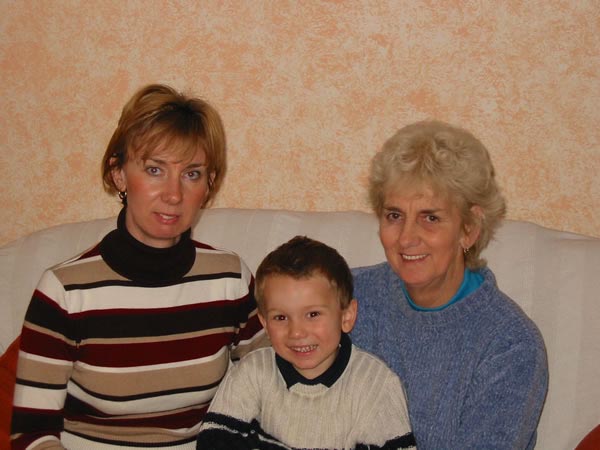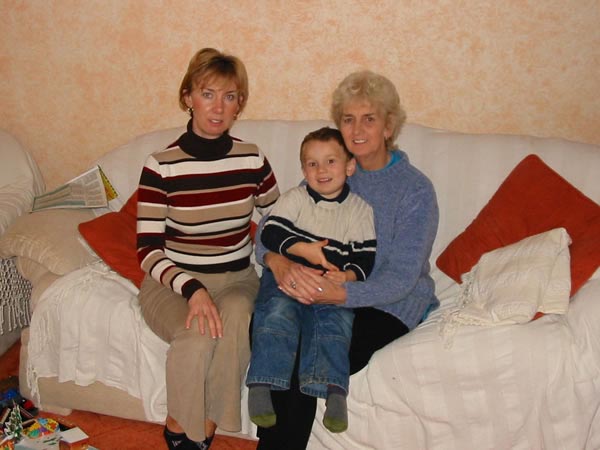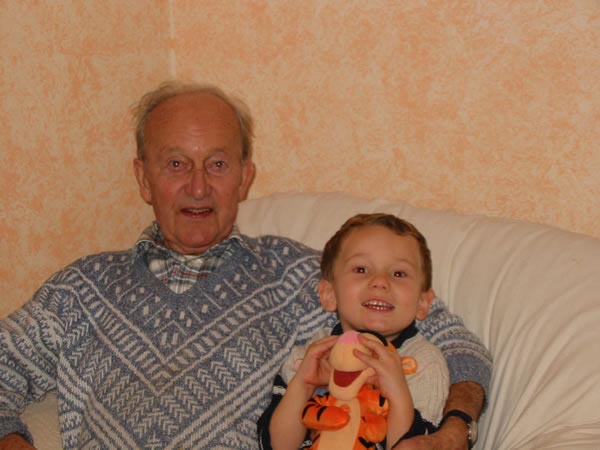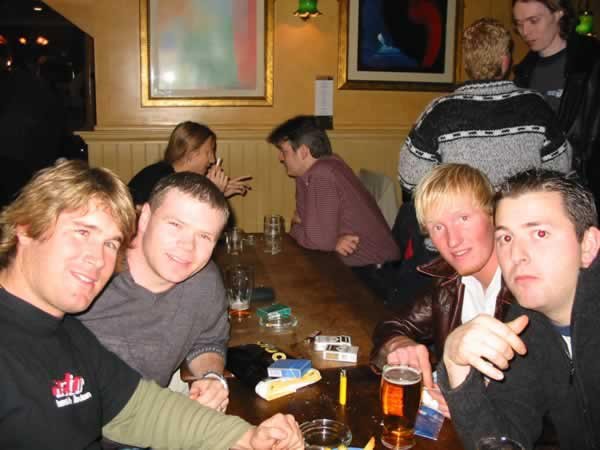
Definition (Part 4)
The Years Spent at a Modern University
We came to college
to slay the dragon
or meet prince charming
to change the world
or find our self.
But after our orientations in
self-discipline
and binge drinking
we gained
normative experiences
that eventually lead
to normative lives.
Ever After to Once Upon
I lied when I said I knew how this story ended. But I didn’t mean to. I thought I knew. I thought that after four years a sense of certainty would have been established, but after three I find myself perched precariously. Where will it finish? Is it possible to have a happy ever after when we strive for reality? Is it the mark of reality and a good writer to find the unhappiness of life and revel in it? Must we always be happy? If not, where does that leave us?
For we have had our beginnings, our middles, our developments and even a devastation or two, but the ending is left like a shining pebble on the bottom of a deep pool. Surrounded by others that are similar yet differ from it slightly in terms of size and shape it’s image dances beneath the surface of the waves letting our eyes catch it for a moment before it is lost and we must try to see it once more.
Legends
The Chinese dragons were the embodiment of the yang–the masculine element. With the force of the wind and the power of rain they were responsible for delivering the water to the vast nation that survived thousands of years under their domain. No stream or valley was without one. When coupled with the ying, or tiger the two symbolized the world or unity. There was no right or wrong in such duality, nor was there good or bad. Both the tiger and dragon could create as easily as they could destroy. A completeness that resisted man’s follies, survived in traditions and histories for thousands of years.
The Chinese dragon had the power of flight, invisibility, the wind, and water. He was both human and beast. He was the subject of myths and legends that permeate the culture to this day. Even after the people’s revolution when no kites of paper flew above an emperor, the spirit of the dragon lived on. For while kites of metal shattered a frightened peace of socialism, the dragon slept.
To race
For at the start
a sort of rhythm takes over–
a collectedness
that later
falls apart.
A real despair
Lasts a momentary eternity
The will
struggles against time
and fear subsides
Conversations
“What do you think?” Elise asked.
“It’s nice, but do you think we can get him to re-carpet the living room…it smells like cat,” replied Caroline.
“He said that’s going to be done next month.”
“Are you sure–they’ll say anything to get a place leased”
“No, he told me he made arrangements for them to come the second week of August after the current residents move out.”
“Ah…well it’s fairly big.”
“Which room would you want.”
“I liked the one with the windows looking out to the front.”
“That’s good, I like the back room.”
“We could use the third bedroom as a study room.
“What would we put in it?” asked Elise.
“Let’s look at it again.”
“I don’t think we have enough furniture?” Elise asked.
“You’re not the ones carrying it upstairs,” replied Roger as he and Michael struggled with the couch.
“But you’re such dears to help,” said Elise.
“Did we have a choice?” asked Michael.
“Not really, but that’s your own fault for living with Roger dear boy,” twittered Elise.
“Elise, stop teasing them and help me get this mattress upstairs!” shouted Caroline from the living room.
“Just leave it for the guys!”
“I will not have those poor boys carting all of my shit up those stairs. Come help.”
“Oh all right,” Elise said.
“Grab that end, I’ll take the bottom.”
“It heavy.”
“Good observation.”
“My aren’t we a tart today.”
“England certainly didn’t dull your tongue. Watch your step.”
“Be nice.”
“I am–put it down and let them get past you.”
“Oh–sorry.”
“What’s left in the truck Caroline?” Roger asked.
“Quite a bit–two desks, the television and box springs, my clothes and some small stuff.”
“Can you guys manage that?” asked Roger pointing to the mattress.
“We’ll be fine.”
“Okay, we’ll go get another load.”
“I have something that should put you in a better mood,” Elise said after Roger and Michael had walked back outside.
“What?”
“Christina dumped Michael.”
“Christina who? Tilt it up over the railing.”
“The girl he was seeing all last year.”
“Oh.”
“You never met her?”
“No, I think I saw Michael twice last year.”
“Oh, well she was a cat–she threw him over for some guy on the gymnastics team.”
“And your point with all of this is…?”
“Well maybe you two can finally….”
“Elise, darling, I don’t think so. Can you possibly go a bit faster–I’m starting to lose it.”
“But you almost did before.”
“That was three years ago–and one kiss does not a romance make.”
“Oh come on–why don’t you ask him out.”
“Even if I wanted to–which I don’t–I’m not about get some poor guy when he’s on the rebound. Set it down for a minute.”
“You can both be on the rebound–heal each other.”
“Funny–and I’m not on the rebound.”
“Oh really?”
“Yes, really. Pick up your end–we’ll slide it into your room.”
“Then why haven’t you dated since John and you broke up. Ouch–watch it I can’t hold on and get through the door.”
“I just haven’t found anything worth-while…and we didn’t break up–there wasn’t anything to break. Quiet about it–I think they’re coming up the stairs.”
“Elise are you going to take the G.R.E.?” Caroline asked.
“I don’t think so. None of the drama MFA programs I’ve looked at require it.”
“Oh, guess I get to go through alone.”
“Sorry.”
“Don’t worry, I just hate taking standardized tests.”
“At least you have a history of doing somewhat well on them. Me–I had about an eight-hundred combined on my SAT.”
“But you’re an art-tist my darling.”
“Funny–I still would kill for an ounce of your sense.”
“It’s highly over-rated. Look where it’s gotten me.”
“Wealth, power and success.”
“Wrong–try again.”
“Misery, enslavement and poverty?”
“Closer.”
“Don’t worry–you’ll probably fall into some luscious opportunity.”
“I’d rather just fall into some guys arms.”
“Oh come on.”
“I’m serious–do you know how long it’s been since I’ve had sex.”
“That bad.”
“Yes. You’re the lucky one in the stable relationship with a great guy about to plan a great life together.”
“Don’t worry…you’ll find someone.”
“I’d settle for something right about now.”
“Have you been writing?” Elise asked
“Yeah, for some reason it’s easier to write when it’s raining.”
“Can I read some of it?”
“Sure.”
The red face spoke to a green face
over a darkened face
about the loss
There was no time
The gray face was missing
Only a yellow face watched
The blue face asleep
as the sheep grazed peacefully
There were no answers
An orange face ran with the violet
amidst the violence of the wind
When the glowing face called
it was the silent face that hid
and the white face that won
And
Words are insubstantial things
Created to substantiate a world
That exists in both light and dark.
Yet for some odd reason we,
scholars and shoe-salesmen alike
are afraid of the dark.
Conversations
“What do you honestly think?” Caroline asked.
“I like them–they’re good.”
“Be honest–what don’t you like.”
“Nothing–they’re really good.”
“Elise, be honest–don’t worry about being polite. You won’t offend me if you don’t like them.”
“Honestly?”
“Yes honestly.”
“Well, I do like them. This one is funny and trite and just sort of there, but I don’t understand the one with all the colors and faces–the ones about running I get. I mean I know what you’re trying to do, but the other one loses me.”
“Thank you.”
“Well, what is it about?”
“You want me to explain it?”
“Yes.”
“What does it make you think of–the images I mean.”
“A bunch of people.”
“What kind of people?”
“Colored people.”
“What makes people colored like that?”
“…their clothes–but it’s their faces…”
“Yeah?”
“Just tell me.”
“No–I think I’ll keep you guessing.”
“Don’t be mean.”
“I’m not–I just know I need to rework it.”
“Why?”
“So you’ll understand it without me having to tell you.”
“Oh.”
“There are other clues that lead Baines to his understanding and decision to trade with Stewart for the piano. Namely the conversation at Morag’s concerning the kitchen table, but while he understands Ada, she does not understand him.”
“Back up a bit,” Elise said. “Was he in the room? I don’t remember that part.”
“Yes, right after Morag hands Stewart his tea you see a shot of Keitel in sitting in another room at a table drinking tea and listening.”
“Strange.”
“Yeah, but you figure a guy like that wouldn’t feel very comfy in the parlor.”
“That’s true–you know that would make a great stage play.”
“But you wouldn’t have all that mud.”
“That’s true, but it would be such a great role to play.”
“Spoken by the diva herself.”
“I am not.”
“No, you just have the entire theater department fighting over which role you’ll get.”
“It is rather nice wondering what I’ll get to play.”
“What plays are they doing next quarter?”
“Mainstage is Milne’s The Ivory Door and the studio is doing Medea.”
“Are they any good?”
“Medea is pretty boring as it’s so well known. Have you read it?”
“Yeah, long time ago.”
“Thought so–but The Ivory Door is really good. I would really like the female lead in it.”
“Think you’ll get it?”
“Oh, probably.”
“How was the test?” asked Elise.
“Okay–kind of fun actually,” replied Caroline.
“Fun? Hello–are you serious?”
“Yeah–but it was really odd.”
“How so?”
“Steven was there.”
“Oh? Did you guys…”
“We didn’t even look at each other.”
“Oh.”
“Yeah. It was weird.”
“Roger told me last week that he talked to him. I guess he’s no longer dating Jennifer.”
“oh.”
“Why don’t you call him? I’m sure Roger has his number.”
“No–it’s just…”
“I know.”
“Do you still need help with that monologue?”
‘Yeah, if you have time.”
“Sure–where is it.”
I saw my friend today.
Once years ago,
Or was it days?
Our eyes met.
A trust was there
And you caught me
when the world wanted to crumble.
And for you?
I’ll never know
What it was I said
or did,
as I’ll never know
how that trust
was broken.
Halfway on my way
from here to wherever
I slipped.
Now when our eyes meet,
I can never speak.
Perhaps I’m beyond repair.
Perhaps it’s best this way
those short uncomfortable spaces.
Perhaps if I had
But I saw my friend today
And smiled in an uncomfortable way.
See how much my words have failed me,
so amidst uneven verses
I look away.
Conversations
“Caroline–Chris, Mike, and Thad called. I told them you wouldn’t be home until late,” Elise said.”
“Thanks, I’ll call them tomorrow.”
“So how was the date.”
“It was a date.”
“That good.”
“Yeah, I think that guy’s toe-jam would be more interesting.”
“Yummy image.”
“I know.”
“So he is definitely not a prospect?”
“For me? No–I prefer those who can carry a conversation on something other than football.”
“He did have nice shoulders.”
“Yes, but it was basically a swollen pimple that was sitting on top of them.”
“My aren’t we in a lovely mood.”
“Sorry–it’s just, oh I don’t know–it’s just that they’re so average.”
“And so are we.”
“Are we? I mean we’ve spent four years here and earned all sorts of honors and recognition–from you on the stage to my papers, we’re both attractive, intelligent women, we’re applying to these great grad schools–why should we settle?”
“I don’t consider myself settling.”
“You’re not–you’re the lucky one.”
“Don’t be so hard on yourself. You still have plenty of time.”
“You’re probably right.”
“Of course I am–am I ever wrong?”
“Do you really want an answer?”
“Quit being a smart ass and let’s figure our what we’re going to cook for dinner. Besides, you know you could always just call Michael.”
“Funny,” replied Caroline.
The Queen of Swords
Which one is it today?
Well, does it matter anyway?
They’re not parts to a machine,
as I’m not trying to be mean,
but men of uncertain virtue.
I must admit it’s true
that I will never care for them
just as I never deal a ten.
Neither wands nor cups fall suit.
Why am I such an uncaring brute?
And instead of passing between,
and only pretending to mean,
actually give up her sorrow
to fall in love tomorrow.
Conversations
“When is this one due,” interrupted Elise.
“Thursday,” replied Caroline.
“Oh okay, sorry go on.”
“Yet the wager was lost by The Player, and his troop must comply–they must perform for Rosencrantz and Guildenstern. The play begins right there on the rolling stage, and Rosencrantz and Guildenstern are suddenly in the castle. It is not until they are about to be hung aboard the ship that early-morning bird-song is heard and the scene returns to the players stage. Dawn is fast approaching as the Ambassador enters to tell of their death and the Players re-pack their wagon and continue on their way. What had been real turns out to have been just a play, while what is real is still unclear. The suspension of disbelief is pulled away as The Player pulls the ropes to hang Guildenstern and Rosencrantz.”
“Is that it?”
“Yeah–what do you think?”
“It’s good, but I like that one you wrote on Kristeva better.”
“Do think that I should submit it instead.”
“I don’t know…I just like it better. It’s
more you.”
“I just can’t tell anymore. It’s all the same after a while–Did Roger help you with your audition tape?”
“Yeah, he and Michael managed to do it.”
“How did it turn out?”
“Really well, but I sent all the copies out with my applications.”
“Ah–what schools did you decide on?”
“Yale, New York, Columbia, Boston, and Penn.”
“Is Roger applying to any of those?”
“Just Penn, but we’re trying to stay in the same area–so we limited it to the East.”
“How I envy such problems.”
“Where is this essay for?”
“Washington.”
“Ah–do you have any other applications left?”
“Just Berkeley. I sent out the University of Chicago and Northwestern yesterday.”
Mortal
I remember trees in November
that towered beneath me
when I ran.
They lifted their bare branches
to the ground.
And death wasn’t something I thought about.
The wind might change
and spring might arrive
Somewhere else,
for reasons are forgotten.
and reason must not forget.
Conversations
“Caroline!” a voice called.
She turned to try to identify the source and saw someone waving at her from across the crowded cafe.
“It’s me, Sarah. Are you eating here?”
“Yes.”
“Come join me then.”
“Okay hold on a minute.” Wonderful.
“So how have you been?” she asked.
“Good, and you?” Just be polite.
“Great. I’m set to graduate at the end of this year, and then I’m getting married.”
“Ah.”
“Yeah he’s a great guy. He’s in the Gamma house–chapter president, three years. We met at a party a year and a half ago. How about you?”
“I’m not seeing anyone right now, not seriously.” Take a deep breath.
“Oh, sorry. I didn’t mean to pry. What did you end up majoring in?”
“English, with a minor in Zoology.”
“oh–I ended up in business and finance. Moose, my fiancé is accounting, so we should be set.”
“I see.”
“But how have you been? It’s been ages since we last saw each other.”
“I’ve been good. I’m going through the process of applying–“
“That’s so good to hear. I was afraid you’d hate me after that first quarter. But it’s so nice to see you after all that time. It’s been such a great four years. I was president of my sorority last year–and it looks like I’ll be working for Arthur Anderson after graduation as Moose’s, I mean Gary’s father has a few connections.”
“oh.”
“How about you, do you know where you’ll be working.”
“Actually I’m going to grad school.”
“Really–for law?”
“No, English.” Law?!
“Oh–my god, I’d never be able to do that. I mean there’s not much demand for that these days. At least with a law degree you can make money. See that’s what I plan to do as wherever I end up working will most likely be willing to pay for any additional schooling. But enough about me have you talked to Elise lately?”
“Yes, we’re living together this year.”
“Oh that’s cool. Is she still pre-med?”
“No, actually she’s graduating in drama and right now she’s applying for MFA programs.”
“Oh–is she still dating that guy from the dorms?”
“No–she’s practically engaged to an ME.”
“That’s cool. At least she won’t have to worry about money. Not that that is all there is, but it certainly is important. How about you and Martin?”
“No, that ended my sophomore year.”
“Sorry to hear that–he was such a cute guy. And so nice. He must have graduated last year cause I haven’t seen his name on the Undergrad Government stuff in a while. Moose, he’s the Fraternity Liaison this year–so I can ask him if you want?”
“That’s all right.” Just say you have a class…
“Are you still jogging?”
“no.”
“I am–well kind of. I got into that step aerobics and then I started jogging a couple of times a week for about ten or fifteen minutes. It really is fun. I go out with a couple of my sorority sisters usually when the weather is nice.”
“Ah–” Tell her you have an appointment with an advisor.
“Oh silly me–here I am prattling on when I have to meet Moose to look at wedding rings. It’s been so nice talking to you. We’ll have to try to keep in touch. Okay?”
“Sure.” Yeah, right.
“Well, I think I have everything–take care. It was nice talking to you.”
“Bye.” Dear God.
“Elise, I’m home,” Caroline called.
“I’m in the bathroom–be right out.”
“You’ll never guess who I ran into today when I was at Gill’s for coffee.”
“Who?” Elise asked as she stepped out of the bathroom.
“Sarah.”
“Clark?”
“None other.”
“Oh dear me–did you say anything?”
“We had coffee together.”
“Lovely.”
“She did most of the talking.”
“Ah–sounds about right.”‘
“I don’t know–it just made me feel so old. I can’t believe we’re graduating in four months.”
“I know–it’s odd.”
Premature Nostalgia
Sometimes I think it is amazing.
How fast these last years have gone
Memories seem to swirl around me
in a moment’s passing
Leaving only an image
or a scent
that lingers.
The time
I spend in rhyme.
With the water of ages
As when the realization came about.
The world was open before me
and a death was at my door.
Conversations
“Elise, there’s a letter from Yale,” Caroline called.
“Fat or thin?” Elise asked as she came into the room.
“It’s pretty thin.”
“Oh god–open it.”
“Me?”
“Yes, I can’t–just open it and tell me…it will be better if I hear it from you.”
“All right. Let’s see…Dear Miss Warner. Thank you for your application to the Yale Drama MFA program. It is with great regret that we must inform you that there were many applicant this year and we were able to accept only ten…..”
“Oh….shit.”
“Actually it says: it is with great satisfaction that we now write to you to extend our invitation for you to study at our institution….”
“You’re kidding–you little shit! Let me see that!”
“Right here–goes on to say that in about a week your information packet will arrive.”
“I can’t believe it–I have to call Roger.”
And
Over there will be the desk
from where I will pen great works.
Those that will carry my name
to the cannons
I will write about injustice
and humanity
Alienation
and society
Loneliness
and love.
Conversations
“Caroline–there are Letters here in the mail.”
“Be right down.”
“Do you want me to open them?”
“No that’s all right. Have you had lunch?” Caroline said as she walked into the kitchen.
“No, do we have anything?”
“How about some left-over lasagna.”
“Sounds good.”
“I’ll get it out of the fridge. Can you get the plates?”
“Sure–aren’t you going to open them.”
“Eventually, yeah.”
“When.”
“When we eat.”
“How can you be hungry?!”
“Simple–I haven’t had lunch.”
“Be serious.”
“I am–it’s just that I like not knowing more than knowing–I can fly up on the wings of expectation.”
“And you afraid of the thud?”
“Yes, but I like being able to fly. I like the what ifs…”
“What if they’re acceptance letters.”
“Then they’re acceptance letters”
Caroline opened the three letters.
“And?” asked Elise.
“Yes, yes and yes.”
“All three? You’re kidding!”
“No, all three.”
“When should hear from Berkeley.”
“I did–no go.”
“Oh sorry–but which one of the two will you chose?”
“I think Washington.”
“You’d go all the way out there? I was hoping you’d chose Chicago or Northwestern.”
“It really depends on the money,” said Caroline.
“I do wish you had applied to someplace closer.”
Untitled fragment on joy
I wish that I could dance with abandon
on a lonely beach.
I wish I could fly between the waves lapping on the sand.
Ponderance is not essential.
When I ran an epiphany might catch me
but later I would laugh at its foolishness.
Now I ask myself–how long.
It feels like forever
Yet I haven’t but I have.
There is a quiet
And I ask
Did it end
Am I whole
Do I know
Does it matter
as this feeling of undergraduate introspection must be done.
Conversations
“It’s just so frustrating,” bellowed Caroline.
“What is?” asked Elise.
“All of this bullshit that I am expected to jump through. I mean, I feel so–so angry and so bored–I don’t know, I just don’t know why I write this shit any more.”
“Because you like to–it’s what you do.”
“I don’t think I even like it any more. And I certainly don’t like Chaucer or Samuel Johnson.”
“It’s just Senioritis–Just think, only eight weeks left before it’s all over.”
“No it’s more than that–it’s that I’m no longer critical.”
“Of course you are–that’s all you do.”
“But not why–I mean I don’t know why I do this anymore. It seems so pointless. It’s like dating guys. I don’t know anymore.”
“Well, why don’t you write about that?”
“About what?”
“What you just said.”
“I couldn’t do that–not and get away with it.”
—
From cstevens@guardian.ucs.bradun.edu Sat May 13 13:52:25 1995
From:
Date: Sat May 13 13:52:25 1995
To: c8reiger74@mcsa.mox.cwru.edu
Subject: Re: raising
I know that I just saw you a week ago
but I have news–
Washington offered me money.
So much has happened in the last week…
hence this note–but as you won’t be back from Chile until next week I thought I would type this now while I have the time.
In three weeks I am reading a paper to the advisory board on the subject of “the state of academia.”
It’s really an awful paper–very self indulgent.
But it answered some questions I had.
When you get home I’ll send you a copy.
It’s good–but unusual.
After that it’s finals time.
Then I have to get a job until I move out to Washington in August.
See you on the 4th.
love
Care
—
“Okay, I think that it’s done,” said Caroline.
“The re-draft?” asked Elise.
“Yeah, do you want me to read it to you?”
“Does a Rottweiler eat meat?”
“Cute–that’s a new one.”
“I know. Roger picked it up and has been using it.”
“Ah. Okay, here it is: Melquíades.”
“Mel-what.”
“Don’t worry it’s a sort of obtuse reference…uhm–quote, ‘Consider this…The hint of the century…Consider this…The slip that brought me To my knees failed…What if all these fantasies…Come flailing around…Now I’ve said too much’ REM…First, imagine that you are an under-graduate studying literature. Next, imagine that you’re sitting before a computer trying to write a critical essay. The glow of the screen is reflected in your eyes as you stare blankly at your notes and then blankly at the Samuel Johnson Reader before you and then at the tree outside and the clothes that need washing and the TV that needs dusting. You get up and make some coffee hoping that will settle your mind and you will be able to write more effectively.”
“I have a question,” said Elise. “Is it a critical essay?”
“Well, sort of, its the sketch of a critical essay. I mean inside the actual essay. Is sort of being critical of being critical–sort of post-modern. I it’s more about writing than it is a serious effort at it.”
“Oh, okay.”
“…You’ve done this how many times–it should be easy. You tell yourself this as you go into the kitchen and make yourself a cup of coffee. If you could just find or formulate a thesis you’d be on your way. It would be finished in under two hours.”
“Another question: is this just filler?”
“No, but sort of. I mean that’s how I tend to write a paper of late. It’s like writer’s block in a way. When you don’t even have an idea, but the thing is due soon. Sort of floundering around for something to grab on to….But, and you catch yourself here, this isn’t any paper–this is the last paper you will ever write as an undergraduate. You sink into one of the chairs at the kitchen table as this realization spreads through your mind–your last paper. It’s hard to believe. You’ve been at this so long….You chide yourself that none of this self-realization is going to help you write a critical essay, so coffee in hand, you sit back down before your computer and begin to type.”
“I like that,” said Elise. “Your breaks in thought. I’ve done that when I get distracted from writing something all the time.”
“Yeah–I think when I wrote that my mind really was wandering. I misspelled three words–going o have to print out another copy after this….Samuel Johnson was a man of words and letters which the literary world has not seen the likes of since. A man of ponderance and often satire, he has become one of the standard bearers of the Cannon and her army of works. Yet Johnson was not always thought of in such an ideal light, proof of this–you stop. You look up and realize you forgot to put sugar in your coffee and you like sugar in your coffee. But instead of getting up and going back into the kitchen you first read over what you have just written, and you realize how awful it is. It isn’t you or your voice or what you really think. It’s what and how you have been told to write. That doesn’t matter, you were almost to a thesis and you’re going to be critical. You take a sip of coffee and continue writing.”
“Ah–telephone. Do you want me to get it?” Elise asked.
“Sure.”
“It’s probably Roger–Hello? My ask who’s calling? Sure just a minute–It’s Simon?”
“Give it here–hello? Hi, yes. Oh. When? I’m sorry but I can’t. Yeah, my boyfriend from Princeton is visiting this weekend. Maybe sure. Okay, bye.”
“Princeton?”
“I don’t know. I needed someplace fast.”
“Was that the one you met in your field class?”
“Yeah, the one who almost got eaten by the tigers when we visited the zoo for class.”
“Sounds like a nice enough boy.”
“He has the brain of a toad.”
“I’ve met intelligent toads.”
“Like who?”
“Kermit.”
“He’s a frog not a toad. Besides he’s a puppet.”
“Toad frog, what’s the difference. And the correct term is Muppet not puppet dear.”
“Okay–but you still haven’t named a toad.”
“How about that guy you dated this winter–the one who invited you to go bird watching?”
“He was pretty much a dork. Kept going on and on about a trip he made to Peru when he was ten. Besides, he didn’t quite grasp the significance of some words like no or get real.”
“Ah–well what about that music major that you went out with. He must have had some sort of intelligence.”
“I have no idea what sort it might have been. I don’t even see how that one managed to get a driver’s license. No I’m through with those things for quite a while.”
“Sounds like a bad Marilyn Monroe song.”
“Which one?”
“‘I’m Through with Love.”
“Love?”
“Okay–never mind. Where were you?”
“Coffee and thinking….In Idler No. 103 Samuel Johnson is writing a sort of epilogue as his publication is ending. He writes, “The Idler and his reader have contracted no close friendship.” After over one-hundred issues, “those who never could agree together shed tears when mutual discontent has determined them to final separation.” Johnson clearly–you pause. Johnson was very pompous. Oh, he had just cause to be. He was after all basically the head neutron in the literary nucleus of his time. He wrote so much. In the four or so years you’ve been here you’ve written so comparatively little. But you shouldn’t think to compare yourself to Johnson. He helped found this academia.”
“And what a fun place it is,” said Elise.
“Oh indeed–I think we’ll miss it though.”
“Really? I’m looking forward to a change. No more pompous professors or pretentious freshmen.”
“Well you realize that you’ll be the pretentious new puppy that will plague the pompous professors.”
“Probably true.”
“Let me finish this….Unlike his other writings though this essay is not an argument or a criticism or a satire, but a farewell. As, ‘it is very happily and kindly provided that in every life there are certain pauses and interruptions, which force consideration upon the careless, and seriousness upon the light; points of time where one course of action ends and another begins; and by vicissitude of fortune, or alteration of employment, by change of place, or loss of friend-ship we are forced to say something, ‘this is the last.” Do you want this, your last effort of criticism as an under-graduate to be a careless ending? Just another two hours spent in front of a computer spell-checking words, making sure all your sentences are punctuated and your paragraphs have good transitions. Do you look back over these four years with a sense of accomplishment or with a sense of loss?”
“Ouch–a bit condemning aren’t we.”
“It gets worse….You came to college to slay dragons or meet your prince, to better yourself, to learn and begin your life, to become a product of yourself and a consumer of others. You’ve consumed Johnson just like Shakespeare, Dickens, Pound, Hemingway way and Byron. During these four years you’ve learned how to digest literature by learning the mechanics and language of critical essays. You have been good and you have been diligent. You have been brilliant and you have been an idiot, yet did you ever know not just What you were saying but Why you were saying it?”
“Read that part again.”
“Did you ever know not just What you were saying but Why you were saying it?”
“Mark that–it’s not very clear.”
“Sure, we’ll come back to it….All of this lovely introspection isn’t helping with your essay on Johnson. It doesn’t help you really either–something is missing. What is it? What is missing? You have a thesis. Samuel Johnson is venerated today, yet his reception by his contemporaries was not always as favorable. Thus we should re-evaluate the importance of–you stop again. You re-read the paragraphs before you. You have arguments, annotations, appositives and apathy. You have four going on the five supporting arguments with at least one quote in each, several secondary sources, but what does it say? It’s getting late and you need to finish this.”
“While readers of Johnson’s time may have outlived The Idler. He comments that ‘the day in which every work of the hand and imagination of the heart shall be brought to judgment, and an everlasting futurity shall be determined.’ Johnson’s ideas have fallen to us. They are our inheritance. They like Eliot said, are our past. Of course we now know so much more then he did as Johnson is a part of what we know. Johnson ideas are still important for–you stop for a moment and wonder about these ideas belonging to Johnson. What makes them so special, so useful for critiquing or discussing? They are well, and usually, clearly written. Yet are these ideas really Johnson’s and his alone? It is possible to copyright your idea, argument or theory? Perhaps too many people strive too hard to put their names upon ideas. They seek to create ideas as lasting products of themselves. They live and promote their ideas. They die and their ideas will, if supported, live on–a very Western idea, this market economy of ideas. Really though you can only register a patent on an idea. The system of academia is concerned with these ideas. That is not a bad thing. We need ideas. We need communication. But is the system faltering or is it something inside of you–or is it both?”
“You need some stronger sort of symbolism I think. A patent office just doesn’t do it.” commented Elise.
“I’m getting to that….You realize you are a part of this system, but you have the ecological value of a blade of grass. Like all the other blades of grass you stay firmly grounded in the soil. Harming nothing, food for others–being grass isn’t much work. You’d much rather be a rabbit or eagle or even a dandelion. If you were a dandelion you would feed from the same soil as the grass yet the ideas you brought to seed might fly to the winds. Johnson wasn’t a blade of grass, although he probably started out that way. He was a dandelion and a rabbit. Right now though you remember that you are just grass and subject to the rabbit’s teeth and the lawnmower’s blade.”
“I like that,” said Elise.
“Your quibbling isn’t helping you finish your paper. You need a conclusion. Johnson’s ideas should not lay forgotten on the side, for they are as important now as every. We need them and those of others to understand not just the works of later writers such as Brönte or Woolf, but to understand where we are now in terms of understanding literature. A manicured lawn is made up of thousands of blades of grass, yet it is only pleasant to look at if the rabbit’s teeth or lawnmower’s blades are sharp and there are no visible weeds.”
“Okay dear–I get the pictures.”
“Give me a break–I was having fun….It isn’t all due to the fact that you are just a blade of grass. There is something going on in this high-tech, image oriented culture that leaves you numb. The wash of news media, films, sit-coms, images, scandals, politicians, starlets it serves as a cultural backdrop that has the ability to destroy us. You have not seen the best minds of your generation destroyed by madness, starving hysterical naked. As, what Sphinx of cement and aluminum bashed open their skulls and ate upon their brains and imagination? There has not been a revolution, but the passing of a silent generation. You have seen the best minds of your generation guzzle the mercuried honey of MTV, staring into the glass hoping to find themselves amongst those images. What Gorgon of mass media and fearful desire tore open their dreams to freeze them within fifteen seconds of stardom. You have not seen those ‘who burned cigarette holes in their arms protesting the narcotic tobacco haze of Capitalism,” or those “who howled on their knees in the subway and were dragged off the roof waving genitals and manuscripts.’ This silent generation has led to a flood of stagnation.”
“Ginsberg?”
“Yeah….Imagine for a moment that you are an undergraduate studying English literature. Next imagine that you have just written a critical essay discussing Samuel Johnson. You are now done–your time serving academia as an undergraduate is ended, yet you feel no different from when you began this essay. There was no joy, no sense of accomplishment, no desire or need to think or write further. You wonder at this, as you weren’t like this when you started as an undergrad, were you? While this essay has been the last, you have no conviction that it is a step towards death as Johnson thought, but there is “the conviction, however forcible at every new impression, is every moment fading from the mind; and partly by the inevitable incursion of new images, and partly by voluntary exclusion of unwelcome thoughts.” You have only taken an image here or a thought there as you passed through hoping to find something ‘before we consider that the time is nigh when we shall do no more.'”
“Nice subversion there,” said Elise.
“There’s more….You came to college to better yourself, to learn, to begin your life and slay a dragon, but are now its product and its commodity. You realize this as you stare at what you have written. You then realize you don’t know why you are doing this. It has become such a consumer oriented process. You read a book, discuss, write a paper, get a grade. Eventually all these hours add up to a diploma sized pay-check and you are done. Go and get a real job. Does it have to be that way? You understand the logic of writing and communication, but you no longer know why you read.”
“Nice climax. Very dramatic.”
“It kind of matches the rest of the thing….
I remember along time ago I met a dragon named Smaug. It was a rainy afternoon and my library books were due, but instead of taking them back to the library I opened the cover of a green book with a picture of a mountain on it, but no pictures inside. That day I read the first sentence. ‘In a hole in the ground there lived a hobbit.’ That day I went even farther and soon found myself at a mystical tea-party, a troll’s campfire, and an eerie underground cavern. I was there when the eagles rescued him and the silver-ware was missing. Just as I was there when Alice became a queen or when a king drew forth the sword. I was there when the marlin jumped and the Nellie waited to set sail. I am there when Colonel Aureliano Buendía faces the firing squad or BigWig fights the General. I am there when Gatsby dies and Mr. Ramsay wakes alone in the night. I am there when the heavens are created and when a dragon falls from the sky. Quote: ‘a creaking sound spread through the darkness. He looked at the great door in astonishment. Gently, steadily, it was opening. The shadowy figure of a dervish appeared, a breath of night embodied.’–Naguib Mahfouz, The Harafish.”–That’s it.”
“When are you presenting it?”
“Next week–Thursday. Do you think you’ll be able to come?”
“Yeah, I told Roger and he’s going to come–maybe Michael too.”
“Did you like it?”
“Yeah.”
“Honestly?”
“Honestly. Actually it’s the first paper you’ve written that I’ve actually understood.”
“Is that good.”
“I think so. I mean I didn’t get lost halfway through. But its not….what did your professor think?”
“He said he enjoyed it, but couldn’t give me higher than a B as I failed to write critically on the primary text. Then he suggested I write a redraft–make it a bit more heavy handed–and submit it to the committee.”
“What a jerk.”
“Kind of–he’s just sticking to the rules I guess. I mean I can’t go around all the time writing stuff like this.”
“Caroline, there’s messages from a guy named Mark and one named Drew. They said they were at the presentation and wanted to get together. I copied down their numbers.”
“Thanks. I’ll get to them later.”
“Do you want to go out with Roger and me? We’re seeing the Nick Park animation festival at the Art House.”
“No, that all right. I think I’m going to call Pat and make sure he’s coming down tomorrow.”
“Is he coming with your parents?”
“I don’t know.”
“Well, between Roger’s family migrating here and my parents plus your family unit, it’s going to be quiet a gathering. How’s Pat doing by the way?”
“Good, his parents finally had Greg over to the house last weekend for dinner.”
“You’re kidding?”
“No, they seem to be adjusting to it finally.”
“That’s good–Greg’s such a nice guy–is he coming down tomorrow too?”
“Don’t know.”
“Okay, we’ll I’m out of here–are you sure you don’t want to come?”
“Yeah, don’t worry. Tomorrow is going to a long day.”
“Oh, before I forget, do you think you’ll be able to meet us for drinks late tomorrow.”
“Sure, my parents will be gone by then.”
“Okay, well then I’ll see you in a bit.”
“Elise are you ready?”
“I’m coming, I’m coming.”
“Just put the silly thing on top of your head and let’s go. You’d think we were going to see the queen.”
“Testy, testy–there, all set. Is it raining?”
“No. In fact, the sun is shining.”
“Oh good–must be an omen.”
“Be serious,” said Caroline.
“God is this boring,” muttered Caroline.
“I know,” whispered the girl to her right. “You think they would try to keep it short.”
“Its the pomp and circumstance.”
“I know, and just think, after this we get to go off to our departments for another two hours.”
“What fun.”
“I know. I’d kill to be in a small department like theater.”
“My best friend is in that one.”
“How lucky. What are you in?”
“English. And you?”
“Physics.”
“Ah–a bit different.”
“Yeah. Say what’s your last name?”
“Stevens. And yours?”
“Stern–Ester.”
“Caroline–That explains it.”
“You’re Caroline Stevens?!”
“Yes–why?”
“Oh, its just I’ve only seen a picture of you. You’re friends with Steven.”
“Yes.”
“Wow, that’s so weird. I just saw that one picture of you at a race standing next to him.”
“Oh. How do you know Steven?”
“From Physics. Actually we’re engaged”
“Ah. How’s he doing.”
“Good.”
“Oh, that’s good to hear.”
Passing the Dragon Gate
Once I met princes
Charming and sincere.
I thought I should be happy
Everyone else seemed to be,
but emptiness lingers
and brokenness subsides.
Conversations
“I think we managed quite well,” said Elise.
“Yes, but how did we all manage this?” asked Roger.
“Manage what?” asked Elise.
“To get out of here in four years,” he replied.
“Blood sweat and tears,” offered Michael.
“That sounds like a bad rock song,” said Caroline.
“I’m serious…it’s pretty amazing,” said Roger.
“Okay, summer classes?” offered Michael.
“Not for me,” said Caroline.
“Me neither,” chimed Elise.
“Okay–for those of us who are going to make money,” said Michael.
“Sociology is going to make you money?” asked Caroline.
“No, why do you think I’m going to grad school?”
“Here’s to those grad schools,” said Roger as he raised his beer.
“To Yale,” said Elise.
“To the University of Washington,” said Caroline and Michael.
“Yes, and to the fine corporation of American Standard,” said Roger.
“I’ll drink to that,” Michael said.
“But will you drink from it?” asked Caroline.
“That was good,” Elise laughed as Roger kissed her while Michael drank and Caroline smiled.
” I wonder as I wander”
out under the sky”
A unicorn, a witch and a lion
were tallying hearts and waiting
for the dark queen to be played.
Their table was a large picture of the color
green fields rolled past yet he
was standing still, so how could
the wind tear his voice from him.
and throw it into the very gates
of the old stone mansion stood open
to the cold night air that smelled
of autumn in spring.
Then the unicorn fell,
the witch was born
and the lion disappeared.
And then….
After
And one June day Caroline graduated from college and continued on with her life.
That was how it ended. Wasn’t very simple really.
© 1997-2001 stega
purgatory.org










